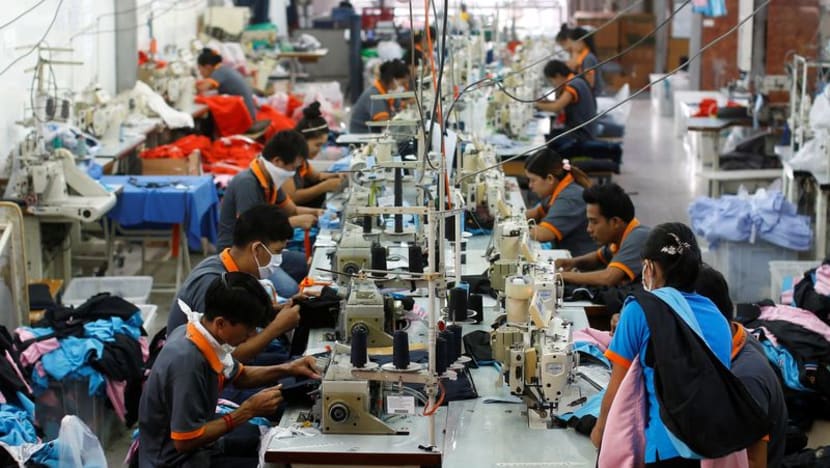Business
Thai Industrial Sentiment Declines to Lowest Level in Three Years

BANGKOK: Thailand’s industrial sentiment dropped to its lowest level in three years in July, reflecting ongoing concerns regarding U.S. tariffs and trade disruptions with Cambodia. According to the Federation of Thai Industries (FTI), the sentiment index fell to 86.6 from 87.7 in June, marking the fifth consecutive month of decline.
The FTI’s report highlighted the effect of the United States imposing tariffs of 19 percent on Thai imports, a significant drop from the previous rate of 36 percent. Although this reduction aligns with regional peers, uncertainty remains regarding tariff rates on transshipments through Thailand from third countries.
During a news conference, FTI chairman Kriengkrai Theinnukul emphasized the limited relief provided by the tariff reduction. He noted that sectors with low profit margins, such as processed foods and agricultural products, continue to face challenges. “These sectors have margins below 10 percent,” he stated, adding that they struggle to pass on increased costs to consumers.
Kriengkrai expressed concern about the viability of these sectors, suggesting that without prompt government support, many may not survive. “We hope the government will quickly support them with credit,” he urged.
The United States remains Thailand’s largest export market, accounting for 18.3 percent of total exports last year, valued at $55 billion. This dependence underscores the potential impact of tariff changes on the Thai economy.
Broader Economic Challenges
The decline in industrial sentiment can be attributed to additional factors, including severe flooding in northern Thailand and diminishing purchasing power among consumers. The ongoing border conflict with Cambodia has disrupted trade flows, further exacerbating the situation.
The FTI reported that the agricultural sector has been particularly affected, with many farmers struggling to find workers during critical harvest seasons. Kriengkrai acknowledged these short-term impacts, stating, “The government needs to intervene and provide immediate support.”
In response to the economic challenges faced by smaller businesses, the Thai cabinet approved a draft law aimed at establishing a national credit guarantee agency. This initiative seeks to assist smaller firms in securing loans, particularly as concerns about rising bad debt and declining credit intensify.
The Bank of Thailand reported a 0.9 percent decline in overall bank lending on an annual basis for the second quarter of 2023, with loans to small firms experiencing a more significant drop of 6.2 percent.
As Thailand navigates these multifaceted economic challenges, the industrial sector’s recovery will depend on effective government interventions and strategies to bolster confidence among manufacturers and consumers alike.
-

 Business5 months ago
Business5 months agoKenvue Dismisses CEO Thibaut Mongon as Strategic Review Advances
-

 Lifestyle4 months ago
Lifestyle4 months agoHumanism Camp Engages 250 Youths in Summer Fest 2025
-

 Sports4 months ago
Sports4 months agoDe Minaur Triumphs at Washington Open After Thrilling Comeback
-

 Sports5 months ago
Sports5 months agoTupou and Daugunu Join First Nations Squad for Lions Clash
-

 Top Stories5 months ago
Top Stories5 months agoColombian Senator Miguel Uribe Shows Signs of Recovery After Attack
-

 World5 months ago
World5 months agoASEAN Gears Up for Historic Joint Meeting of Foreign and Economic Ministers
-

 Health4 months ago
Health4 months agoNew Study Challenges Assumptions About Aging and Inflammation
-

 Business5 months ago
Business5 months agoOil Prices Surge Following New EU Sanctions on Russia
-

 Entertainment4 months ago
Entertainment4 months agoDetaşe-Sabah Violin Ensemble Captivates at Gabala Music Festival
-

 Entertainment4 months ago
Entertainment4 months agoBaku Metro Extends Hours for Justin Timberlake Concert
-

 Top Stories5 months ago
Top Stories5 months agoRethinking Singapore’s F&B Regulations Amid Business Closures
-

 Business5 months ago
Business5 months agoU.S. House Approves Stablecoin Bill, Sends to Trump for Signature









